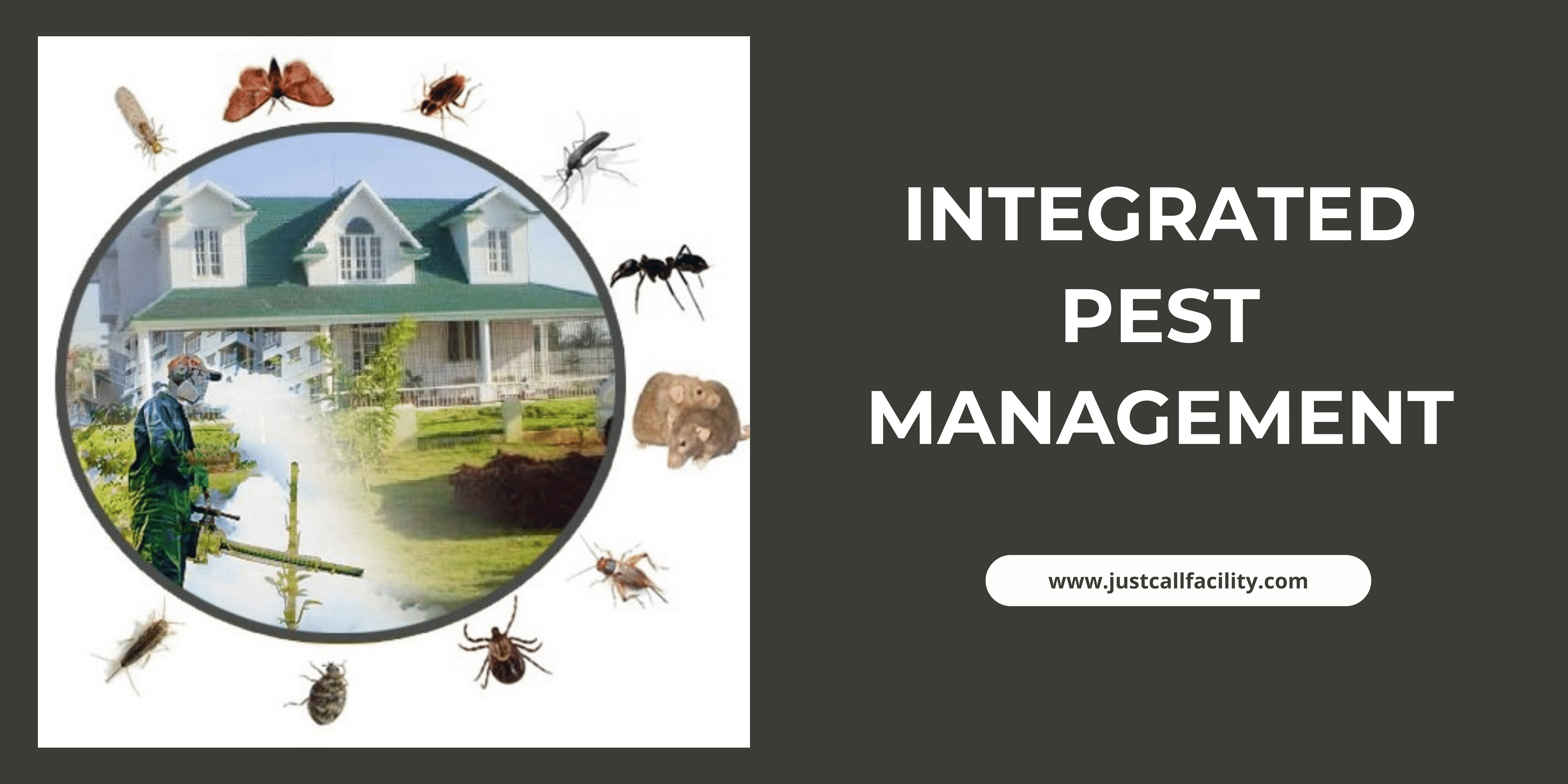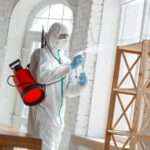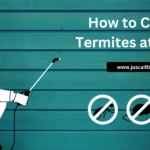On your property, pests can cause chaos by creating harm, health risks, and financial losses. Traditional pest management techniques sometimes rely on the careless application of pesticides, which is bad for the environment and people’s health. On the other hand, Integrated Pest Management (IPM) is a more sophisticated and environmentally friendly method of pest control. In this blog, we will examine the idea of IPM, its advantages, and the crucial procedures involved in putting an efficient IPM program in place.
Integrated Pest Management (IPM) – An Overview
IPM is a pest control approach that prioritizes long-term fixes with little negative effect on the environment or human health. IPM programs make use of detailed, up-to-date knowledge of pest life cycles and how they interact with the environment. Pesticides are the last choice for a business with an IPM program to address insect issues. Some tactics are preferred, such as installing barriers to keep pests outside of your home or using traps to catch them when they enter.
Using pesticides to control insect populations should only be done when required, according to Integrated Pest Management. IPM is not used by businesses that enroll clients in recurrent maintenance programs with regularly scheduled spraying.
How Integrated Pest Management Protects Your Property?
Integrated Pest Control offers a range of benefits to farmers, the environment, and customers seeking non-toxic solutions. It promotes sustainable agriculture, reduces pesticide reliance, protects non-target species, minimizes water contamination, and prioritizes long-term environmental preservation. By adopting this approach, stakeholders can enjoy effective pest management while prioritizing ecological responsibility and sustainability.

-
Decreased Reliance on Chemical Pesticides
An important benefit of integrated pest management in agriculture is that it reduces the need for chemical pesticides. It is important because chemical pesticides may harm non-target creatures, water supplies, human health, and the ecosystem as a whole. By combining chemical and non-chemical methods, Integrated Pest Management (IPM) efficiently addresses pest problems while using fewer pesticides. The hazards of unintentional poisoning and the buildup of harmful compounds in our ecosystems are greatly reduced by this strategy.
-
Benefits to the Environment
IPM, or Integrated Pest Management, is a more environmentally responsible method of pest control that considers how various pest management techniques can affect the environment. It stresses preventative methods, biological controls, and targeted pesticide treatments only, when necessary, in order to provide a holistic and sustainable approach to pest management.
Moreover, IPM procedures are designed to maximize soil health through techniques like crop rotation, organic amendments, and biological pest management, assuring agricultural systems’ long-term sustainability and production while causing the least amount of environmental harm possible.
-
Enhanced Efficiency and Improved Cost-To-Value Ratio
Integrated pest management is more effective than conventional pest control techniques since it targets the underlying causes of pest issues and offers durable remedies. According to this strategy, using IPM to manage pest problems is probably more successful and will save time, money, and resources. IPM offers a thorough and ecologically responsible approach to pest management by putting a strong emphasis on preventative and sustainability techniques. This strategy ensures long-lasting outcomes while reducing the negative effects on finances and resources.
-
A Long-Term Sustainable Approach
IPM is a method of pest management that is sustainable. This method considers how pest management strategies may impact the ecosystem over time. Moreover, IPM is a holistic approach to pest control that prioritizes environmental well-being and ensures the long-term health and balance of natural resources. It combines biological and cultural control methods to promote the preservation of the ecosystem while effectively managing pests.
-
Reduced Rate of Pesticide Resistance Development
Insects can eventually develop a resistance to pesticides. Natural chemical resistance develops when insects with genetic features that make them less chemically vulnerable may survive when chemicals are applied often.
As a result, these insects that survive pass on their resistant genes to their progeny, resulting in the appearance of pests with a high level of resistance known as “super pests.” The probability of this resistance developing can be considerably decreased by using natural strategies in integrated pest management.
Key Principles for Effective Pest Management
Accurate pest identification and infestation level assessment are necessary for effective pest control management. Examining each area, especially those that provide food, shelter, or water, may help locate the infestation if there is one. The following steps are a list of successful pest infestation management strategies:
-
Inspection
A good pest management program must include a timetable for inspections. In addition, food processors typically undertake weekly inspections, while some facilities even do so more frequently. Regular inspections should focus on the areas where pests are most likely to develop and search for potential entrance points.
-
Prevention
Inspections of pest control systems regularly demonstrate the need to address these shortcomings before they become problems. In order to reduce the need for chemical pesticides and insect pressure, exclusion, structural maintenance, and housekeeping are effective preventative measures.
-
Identification
Different bugs behave differently. It is possible to get rid of pests more effectively by determining the issue species. Effective pest management always starts with accurate pest identification. Make sure your Pest Control Service gets clear instructions on how to recognize and describe pest activity.
-
Selection of Treatment
The use of non-chemical control methods before chemical ones is strongly emphasized in integrated pest management. Chemicals can be used in the least volatile forms if alternative therapies prove ineffective or unsuitable. Moreover, pests can be successfully eliminated using non-chemical pest management techniques with little danger to the environment. Also, this will lead to greater pest control ratings during audit time.
-
Monitoring
The most important knowledge is that staff members should be the IPM program’s daily eyes and ears and that pest control is a continual effort. To avoid an infestation, staff members should be mindful of cleanliness issues and report any signs of insect activity.
Wrapping Up
In conclusion, implementing Integrated Pest Management (IPM) practices is crucial for effective and sustainable pest control. By prioritizing long-term solutions and minimizing the use of harmful chemical pesticides, IPM not only protects your property but also ensures the overall well-being of the environment.
Whether you are dealing with termites or any other pests, Just Call Facility, Pest Control Services in Delhi provide effective and long-lasting solutions. With their attention to detail, use of environmentally friendly products, and commitment to client safety, you can trust them to create a pest-free environment for your home or business.





